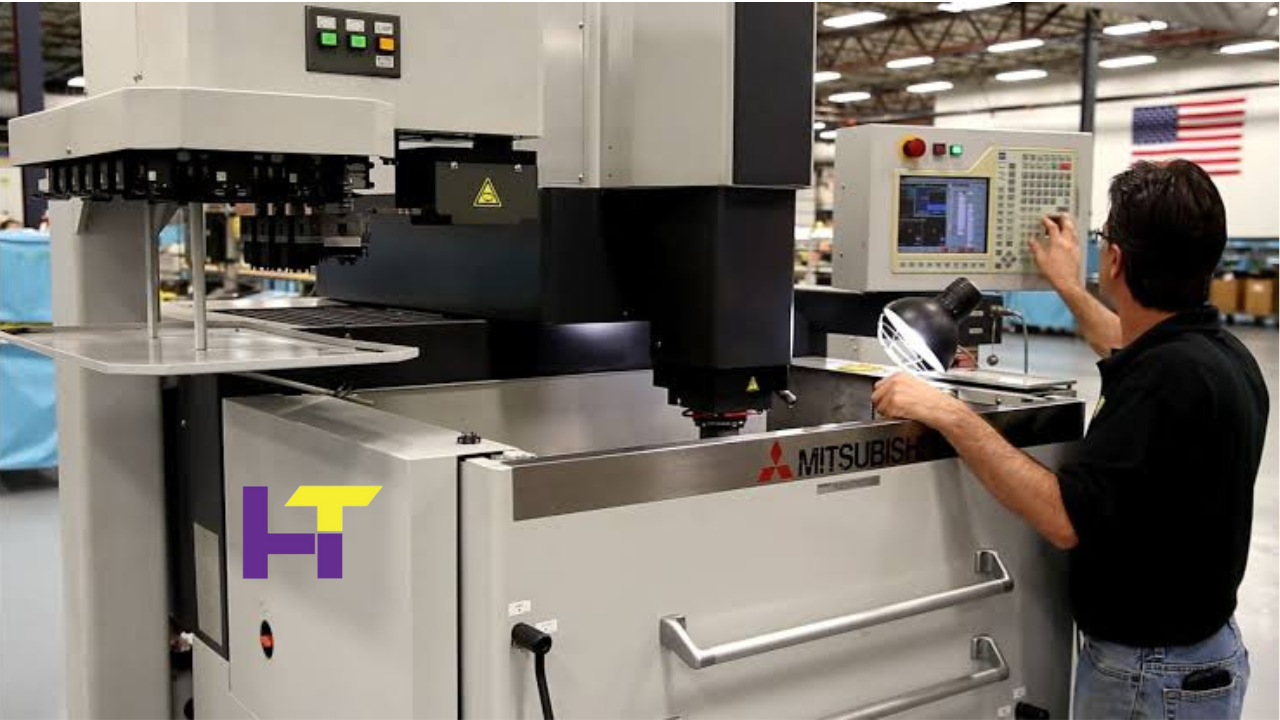How Custom CNC Milling Enhances Prototyping and Product Development

Prototyping is the crucial bridge between concept and reality at the heart of product development. In today’s fast-paced business landscape, where innovation is the key to staying ahead, the ability to swiftly iterate designs and test concepts is paramount. This is where custom CNC milling emerges as a game-changer.
In this blog, we’ll explore the fascinating world of custom CNC milling and how it revolutionizes prototyping and product development.
Let’s begin.
Understanding Custom CNC Milling
CNC milling is a computer-controlled manufacturing process that precisely removes material from a workpiece to create custom parts. It replaces manual operation with automated instructions programmed into the machine, ensuring accuracy and efficiency.
CNC milling offers precision, efficiency, flexibility, complexity, and consistency compared to manual machining. It excels at producing intricate parts with tight tolerances, faster production cycles, and minimal variability.
The process involves designing the part digitally, programming the CNC machine with instructions, setting up the workpiece and tools, machining the part, finishing as needed, and inspecting for quality.
Benefits of Custom CNC Milling in Prototyping
Rapid turnaround times: CNC milling accelerates prototyping iterations by automating manufacturing, reducing lead times compared to manual methods.
Precision and accuracy: CNC milling achieves high precision, enabling the creation of intricate designs with consistent quality and tight tolerances.
Material versatility: CNC milling offers a wide range of material options accommodating diverse prototyping needs from metals to plastics and composites.
Cost-effectiveness: CNC milling is cost-effective for prototyping, minimizing expenses through efficient production and reducing the need for expensive tooling modifications.
Applications of Custom CNC Milling in Product Development
Concept validation: Custom CNC milling plays a crucial role in product development by facilitating concept validation through physical prototypes. These prototypes allow designers and engineers to translate digital designs into tangible models that can be evaluated for form, fit, and function.
Iterative design improvements: CNC-milled prototypes are valuable tools for iterative design improvements. Designers can analyze and test prototypes to identify areas for refinement or optimization, such as improving ergonomics and enhancing structural integrity. With CNC milling, designers can easily modify and iterate on designs, incorporating feedback from testing and evaluation to enhance the product’s design until it meets the desired specifications and performance criteria.
Functional testing: CNC-milled prototypes are instrumental in conducting functional testing to evaluate the performance and behavior of a product under real-world conditions by subjecting prototypes to various tests and simulations, such as mechanical stress testing, thermal analysis, durability, and reliability.
Best Practices for Utilizing Custom CNC Milling in Prototyping
Tips for optimizing design files for CNC milling
Optimizing design files for CNC milling involves preparing digital models to ensure compatibility with CNC machining processes. This includes simplifying geometries, minimizing sharp internal corners, and specifying appropriate toolpaths for efficient machining.
By optimizing design files, engineers can enhance the manufacturability and quality of CNC-milled prototypes, reducing the risk of errors or inconsistencies during production.
Considerations when selecting materials for prototypes
Engineers must consider mechanical properties, surface finish requirements, and cost constraints when selecting prototype materials. Different materials offer varying strengths, stiffness, and thermal properties and suitability of prototypes for testing and evaluation.
Engineers can ensure that prototypes meet the desired specifications and performance criteria while balancing budgetary considerations by carefully evaluating material options and their compatibility with CNC milling processes.
Collaborating effectively with CNC milling service providers
Effective collaboration with CNC milling service providers is essential for successful prototyping projects. This involves clear communication of design requirements, project timelines, and quality expectations. Engineers should provide detailed specifications and feedback to the service provider, ensuring they fully understand the project objectives and deliverables.
Additionally, establishing open lines of communication and fostering a collaborative partnership can facilitate problem-solving and address any challenges that may arise during the prototyping process.
Real-World Applications of Prototyping Projects Using Custom CNC Milling
Automotive industry: Automotive manufacturers use custom CNC milling to prototype engine parts, dashboard panels, and body panels. For instance, they may prototype an intake manifold design using CNC milling to produce functional prototypes for testing. Before mass production, these prototypes are evaluated for performance, fit, and durability.
Medical Device Development: Medical device manufacturers use custom CNC milling to prototype prosthetics, surgical instruments, and diagnostic equipment. For example, a startup might use CNC milling to prototype a new orthopedic implant design, allowing surgeons to assess fit and performance before clinical trials.
Aerospace Industry: Aerospace companies use custom CNC milling for prototyping aircraft components like fuselage parts, wing structures, and engine mounts. For example, they might prototype a lightweight composite wing spar design, validating structural integrity and aerodynamics before full-scale production.
Consumer Electronics: Consumer electronics companies use custom CNC milling to prototype smartphones, tablets, and wearable devices. For example, they might prototype a new smartphone casing design, allowing designers to assess ergonomics, aesthetics, and functionality before finalizing production.
Conclusion
In conclusion, custom CNC milling revolutionizes prototyping and product development by enabling rapid iteration, precision, and versatility. Its ability to produce precise prototypes accelerates design validation and refinement, driving innovation forward. By streamlining prototyping processes and reducing time-to-market, CNC milling empowers businesses to bring their ideas to fruition efficiently. As technology advances, the role of custom CNC milling in shaping the future of innovation remains paramount.
Read More: Navigating the World of CNC Manufacturing: A Comprehensive Guide.






